Death & Taxes is a american film of genre Documentary
Death & Taxes (1993)
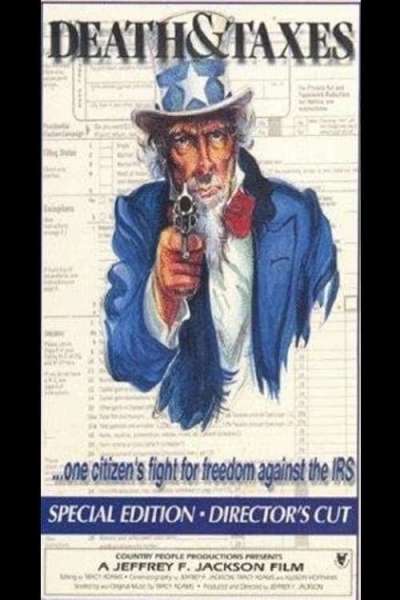
If you like this film, let us know!
- Infos
- Casting
- Technical infos
- Photos
- Videos
- Film quotes
- Characters
- Music
- Awards
Length 1h53
OriginUSA
Genres Documentary
Themes Documentary films about historical events, Documentaire sur une personnalité, Documentary films about politics, Political films
Rating81%










Death & Taxes is a 1993 documentary film directed by Jeffrey F. Jackson about Gordon Kahl, a tax protester who was killed in a shootout with local law enforcement officials in Smithville, Arkansas in 1983.
Comments
Leave comment :
Suggestions of similar film to Death & Taxes
There are 8965 with the same cinematographic genres, 10065 films with the same themes (including 217 films with the same 4 themes than Death & Taxes), to have finally 70 suggestions of similar films.If you liked Death & Taxes, you will probably like those similar films :
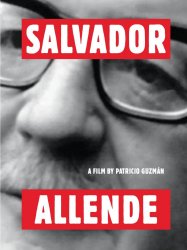
Salvador Allende (2004)
, 1h40Directed by Patricio Guzmán
Origin Chili
Genres Biography, Documentary
Themes Politique, Documentary films about historical events, Documentaire sur une personnalité, Documentary films about politics, Political films, Films about Latin American military dictatorships
Actors Patricio Guzmán
Rating75%





This film shows how Allende managed to be elected in Chile and brings hope to a part of the population by enforcing socialist measures. It also explores Richard Nixon's policies and his orders to the CIA (Project Fubelt) concerning Allende during his election campaign.
 , 52minutes
, 52minutesOrigin France
Genres Documentary
Themes Films set in Africa, Politique, Documentary films about historical events, Documentaire sur une personnalité, Documentary films about politics, Political films
Rating74%





Ce documentaire retrace les quatre années de pouvoir de Thomas Sankara, président du Burkina Faso de 1983 à 1987. Chef d’État surprenant, il est surnommé « le Che africain » et connu de tous en Afrique pour ses idées novatrices, son franc-parler teinté d’humour ravageur, sa fougue et son altruisme. Avec une arme dans une main et les œuvres de Karl Marx dans l’autre, Sankara devint président à l’âge de 34 ans. Il bouscula immédiatement les fondations du pays au nom colonial français, Haute-Volta, qu’il renomma Burkina Faso, « Terre des hommes intègres ». Ce film rend compte de l’impact de cet homme et de sa politique sur les Burkinabés et sur l’Afrique en général.

The U.S. vs. John Lennon (2006)
, 1h39Origin USA
Genres Documentary, Musical
Themes Films about music and musicians, Documentary films about historical events, Documentary films about music and musicians, Documentaire sur une personnalité, Documentary films about politics, Musical films, Political films
Actors Tariq Ali, Walter Cronkite, John Lennon, Yoko Ono, David Peel, Gore Vidal
Rating72%





Alors que la guerre du Viêtnam suscite de plus en plus la polémique, que les manifestations s'intensifient et que le gouvernement américain multiplie les opérations d'espionnage et d'écoute, un chanteur célèbre décide de militer pour la paix. Il doit alors faire face aux représailles du gouvernement américain.
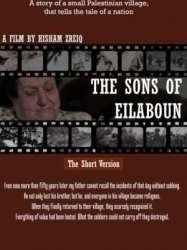
The Sons of Eilaboun (2007)
, 24minutesDirected by Hisham Zreiq
Origin Israel
Genres Documentary
Themes Films set in Africa, Films about religion, Documentary films about law, Documentary films about war, Documentary films about historical events, Documentaire sur une personnalité, Documentary films about politics, Documentary films about religion, Political films, Films about Jews and Judaism
Rating68%





The film starts with Melia Zreiq, an old woman from Eilaboun, saying: "I hope God will bring peace to this land, and let the peoples live together - a good life. I hope there will be peace". Historian Ilan Pappe talks about Plan Dalet, a plan that David Ben-Gurion and the Haganah leaders in Palestine worked out during autumn 1947 to spring 1948. Pappe discusses the details of the plan, and how was it carried out. On October 30, 1948, the Israeli army entered Eilaboun at approximately 5 AM. They then forced the villagers together in the main square of the village. They chose seventeen young men. Five of them were taken as human shield, and the rest of the twelve were killed, each in a different location. This all happened after the expulsion of the rest of the village to Lebanon, where they became refugees after a five days forced march to Lebanon. After a United Nations peace keeper observed and reported Israel was forced to allow the people back.

Terror's Advocate (2007)
, 2h15Directed by Barbet Schroeder
Origin France
Genres Documentary
Themes Films about terrorism, Documentary films about law, Documentary films about war, Documentary films about historical events, Documentaire sur une personnalité, Documentary films about politics, Documentary films about terrorism, Political films
Actors Barbet Schroeder
Rating70%





Jacques Vergès est né « colonisé » (selon ses propres termes) en 1925 à Ubone au Siam, dans l'actuelle Thaïlande(ou en 1924). Sa mère est vietnamienne et son père est réunionnais, consul de France au Siam au moment de sa naissance.
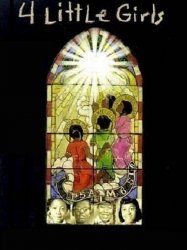
4 Little Girls (1997)
, 1h42Directed by Spike Lee
Origin USA
Genres Documentary, Historical
Themes Films about racism, Films about terrorism, Documentary films about racism, Documentary films about law, Documentary films about war, Documentary films about historical events, Documentaire sur une personnalité, Documentary films about politics, Documentary films about terrorism, Political films
Actors Ossie Davis, Spike Lee, Bill Cosby, Walter Cronkite
Rating77%





Film documentaire, 4 little girls revient sur l'attentat à la bombe dans une église afro-américaine qui, en 1963, tua quatre fillettes âgées de 11 à 14 ans.

Confrontation at Concordia (2003)
Origin Canada
Genres Documentary
Themes Films set in Africa, Films about religion, Documentary films about law, Documentary films about war, Documentary films about historical events, Documentaire sur une personnalité, Documentary films about politics, Documentary films about religion, Documentary films about cities, Political films, Films about Jews and Judaism
The documentary opens with scenes of the violence at the event, depicting fighting between protesters and Jewish students attempting to enter the venue. This is followed by an interview with student Samir Elitrosh, a leader of the Solidarity for Palestinian Human Rights and the leader of anti-Israel violence who was later suspended. It also features interviews with Concordia's Hillel president Yoni Petel and Concordia rector Frederick Lowy, and concludes with a discussion of what it sees as the growing trend of anti-Israel activities on North American campuses.

Motherland (2010)
, 1h58Directed by Owen 'Alik Shahadah
Origin USA
Genres Documentary
Themes Films set in Africa, Films about slavery, Films about racism, Documentary films about racism, Documentary films about law, Documentary films about historical events, Documentaire sur une personnalité, Documentary films about politics, Political films
Actors Harry Belafonte, Abdulkadir Ahmed Said
Rating82%





Motherland is an epic documentary about the African continent from Ancient Egypt to the present. It is an overview of African history and contemporary issues but with the African people at the centre of the story. It is one of the first Pan-African features to be made.
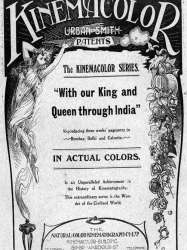
The Pageant Procession (1912)
, 2h30Origin United-kingdom
Genres Documentary
Themes Documentary films about historical events, Documentaire sur une personnalité, Documentary films about politics, Political films, Films about royalty
Rating65%






Roosevelt in Africa (1910)
Origin USA
Genres Biography, Documentary
Themes Documentary films about historical events, Documentaire sur une personnalité, Documentary films about politics, Political films
Rating59%





 Connection
Connection